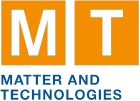Speaker
Dr
Volker Tympel
(Helmholtz Institute Jena)
Description
A Cryogenic Current Comparator (CCC) is a non-destructive, metrologically-traceable, charged particle beam intensity measurement system for the nano-ampere range. Classical CCCs for beamline applications consist of a superconducting meander-shaped shielding, a su-perconducting pick-up coil with a highly permeable flux-concentrating core, and a Supercon-ducting Quantum Interference Devices (SQUID). A first CCC (GSI-Pb-CCC, 1996 completed, 2014 upgraded, free inner diameter of 145 mm) was made of lead. Later versions (DESY-Nb-CCC 2010 tested at HZ Berlin; CERN-Nb-CCC, 2015 completed, currently in operation at CERN Antiproton Decelerator; GSI-Nb-CCC-XD for the CRYRING@ESR with a free inner diameter of 250 mm) were made of niobium.
It has been shown that the construction of a CCC shield with a complex meander structure using niobium is possible but also inflexible, time-consuming, and expensive. This work shows that it is possible to measure main parameters like the noise behaviour of a CCC with flux-concentrator-core by a lead-foil dummy-CCC without meander shielding. We found good agreements between the low-frequency (100 pA/√Hz @ 1 Hz) and white noise (3 pA/√Hz @ 10 kHz) of the GSI-Nb-CCC-XD and a dummy-Pb-CCC-XD with the same core type (GSI328plus). Using a different meander-design it is also possible to create a complete CCC with meander shielding from lead-foil to test a coreless CCC version [1].
References
[1] V. Zakosarenko et al., Coreless SQUID-based cryogenic current comparator for non-destructive intensity diagnostics of charged particle beams. Supercond. Sci. Technol. 32 (2018) 014002 (6pp), https://doi.org/10.1088/1361-6668/aaf206.
Author
Dr
Volker Tympel
(Helmholtz Institute Jena)
Co-authors
Mr
David Haider
(GSI Helmholtz Centre for Heavy Ion Research, Darmstadt)
Prof.
Frank Schmidl
(Institute of Solid State Physics, Jena)
Prof.
Herbert De Gersem
(Institute for Accelerator Science and Electromagnetic Fields , Darmstadt)
Mrs
Jessica Golm
(Institute of Solid State Physics, Jena)
Dr
Jocelyn Tan
(CERN, Geneva)
Dr
Marcus Schwickert
(GSI Helmholtz Centre for Heavy Ion Research, Darmstadt)
Dr
Matthias Schmelz
(Leibniz Institute of Photonic Technology, Jena)
Dr
Nicolas Marsic
(Institute for Accelerator Science and Electromagnetic Fields , Darmstadt)
Prof.
Paul Seidel
(Institute of Solid State Physics, Jena)
Dr
Ronny Stolz
(Leibniz Institute of Photonic Technology, Jena)
Dr
Thomas Sieber
(GSI HelmholtzCentre for Heavy Ion Research, Darmstadt)
Prof.
Thomas Stöhlker
(Helmholtz Institute Jena)
Dr
Vyacheslav Zakosarenko
(Leibniz Institute of Photonic Technology, Jena)
Dr
Wolfgang Müller
(Institute for Accelerator Science and Electromagnetic Fields , Darmstadt)

